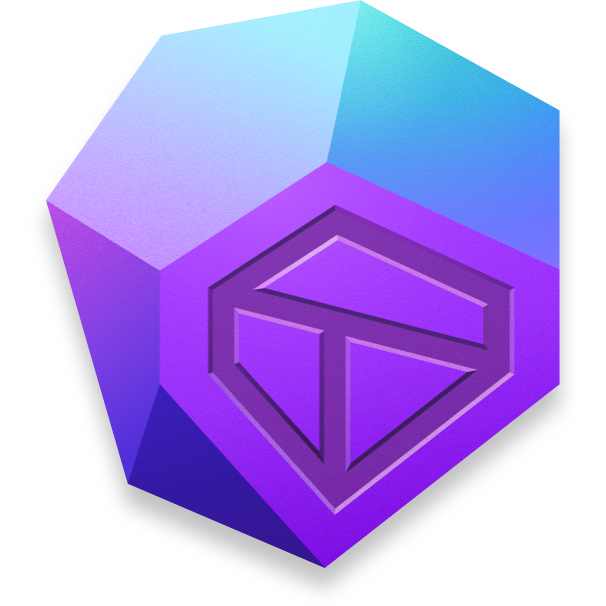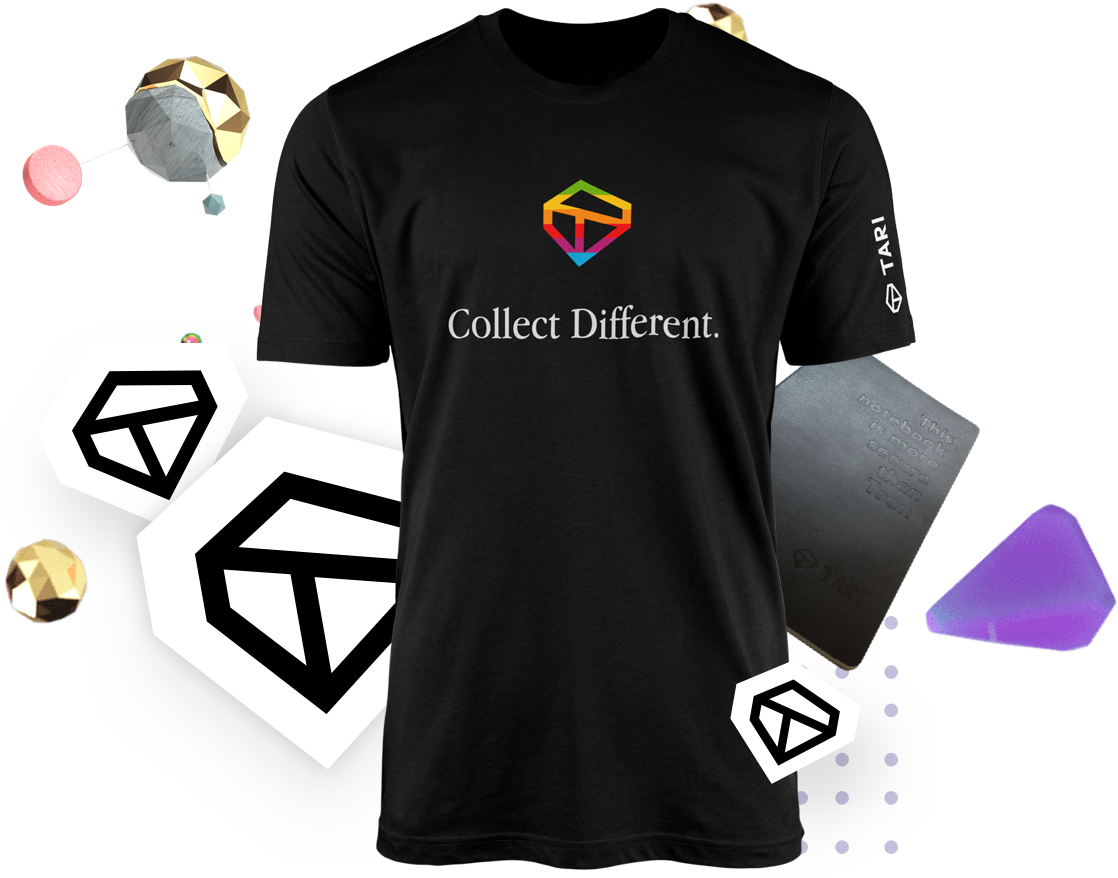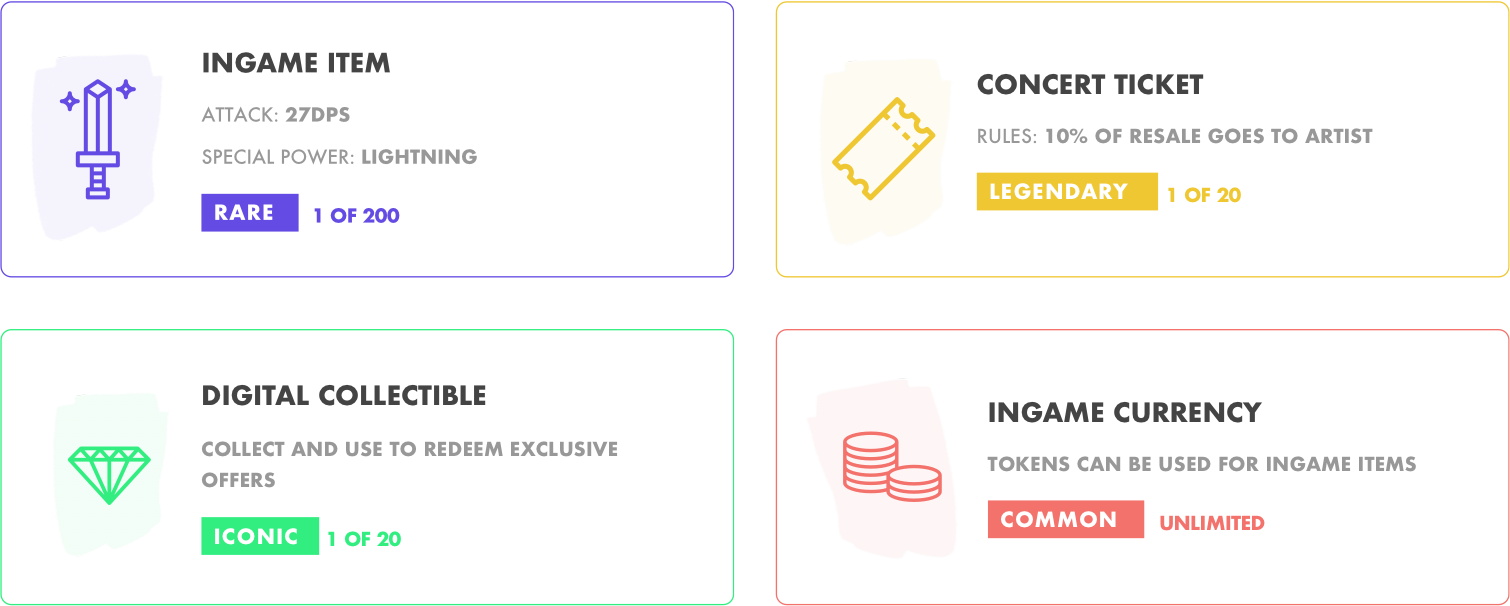June 11, 2024
Developer Update
Tari enables tinkerers to design new stories and experiences. Someday a mesmerizing and digitally scarce asset or collectible you covet will unlock new business opportunities for the creator and a new world of possibilities for you. This asset will be issued on Tari. Tari is built in Rust and open source.
Learn MoreTari is a highly versatile blockchain protocol built in Rust. It is ultra-high performance, infinitely scalable, open source, and has unique confidentiality features that keep users safe and enable vast new use cases.
Tari Tinkerers will be able to build never-before-seen applications using Tari building blocks.
By using combinations of templates to create custom rulesets quickly and easily, tinkerers will be able to unlock a new world of business possibilities while delivering stunningly beautiful user experiences.
Tari has all the right ingredients to be the most useful protocol for digital assets on earth.
High performance, easy to integrate with, stable, well documented, open-source, secure, and private by default.
Dive into how it works.
Confidentiality is a prerequisite for useful applications.
No business wants everyone to know what every customer pays or who their best customers are. And no one wants every financial decision to be a scarlet letter. Through supporting meaningful confidentiality features, Tari will meet users where they are, keep them safe, and enable vast new use cases.
The Tari community is comprised of many types of amazing collaborators.
Imagine a broad spectrum of brilliant creators, builders, advocates, and philosophers all working towards a single goal: to build the most useful decentralized platform that empowers anyone to create digitally scarce things people love.
Want to join the party? Everyone is invited.
The Tari RFCs (request for comments) are the starting point for the Tari project. Ideas that start as discussions on IRC are formalized here before implementation by the Tari community. Have feedback about anything you see here? Please submit an issue on Github.

The goal for Tari Labs University (TLU) is to create the best free, open source educational resource for the many technologies that comprise blockchain systems. Current topics include Schnorr signatures, scriptless scripts, bulletproofs, pure-Rust elliptic curve cryptography, MimbleWimble, merged-mining, confidential assets, and more. Have feedback or think an explanation could be improved? Have ideas for new content? Please contribute to TLU on Github.

Download a community developed, reference-design mobile wallet app called Tari Aurora, to send and receive testnet Tari (tXTR). Using and contributing to Aurora is a great way to play with the Tari testnet and learn more about what makes Tari special.

Run a testnet base node to help test network stability, security, and mine testnet Tari (tXTR). Check out the Getting Started section to learn how to run a base node and start mining.

Explore a wide variety of answers for common questions asked by the Tari community.
View the FAQMeet Tari Aurora. Aurora is a simple, beautiful Tari wallet developed by the Tari community.
Aurora is being developed as a reference-design. Creators and developers can use the Aurora libraries and codebase as a starting point for developing their own Tari wallets and applications. In its production-ready state, Aurora will be a fully functional Tari wallet focused on Tari as a digital currency.

Dive into the current and historical state of the Tari blockchain through the block explorer. Tari has confidentiality features, so Tari users are kept safe. After all, you cannot use an online tool to look up someone's bank balance, can you?
Mine Tari with a single click. Tari Launchpad installs and configures a node and miners behind the scenes. Just point it and your wallet and watch the Minotari roll in.
Download Launchpad
For more advanced users who want to configure the Minotari tool-suite (node, wallet, miners) exactly according to their tastes, download the Minotari Suite binaries.
Download Tari Suite
The Tari community is filled with amazing contributors who care about creating new ways to tell stories, and freedom enhancing software. Join us.
The Tari community exists on a growing number of platforms and planets.
Tari exists because creators, entrepreneurs, and developers want it to.
A goal of the Tari community is for developers of any skill level to be able to quickly build useful applications that leverage the Tari network and contribute to the Tari project.
The best way to get started is to start running a Tari node. A Tari node is the basic building block of the Tari blockchain and network. Nodes perform the critical functions of maintaining the ledger. Without nodes, there is no network.
Every new node increases the size of the Tari network and contributes to network security. There are many things that you can do with the Tari base node client:
It’s incredibly easy to set up your own Tari base node. There are two ways to accomplish this:
Have questions? The Tari community prides itself on being open and inclusive. There are no dumb questions. The best places to engage with the Tari developer community are on IRC or Discord#dev.
What can you do with tXTR besides experimenting with transactions? You can “spend” your hard-earned, infinite supply, fake Tari on exclusive one-of-a-kind items in the TTL (Tari Testnet Limited) store*. Everything in the store is denominated in tXTR (and is therefore free) except for shipping costs. Check it out here and let folks know what you think on Discord or IRC.
* tXTR has no monetary value and cannot be exchanged for cash, cash equivalent, or other tokens or cryptocurrencies.

Read discussions, learn how it's built, and view our most recent updates to the Tari protocol.
The latest updates from developers contributing to the Tari protocol.
View all UpdatesThe Tari protocol is written entirely in Rust. The Tari community is a huge fan of Rust due to its performance characteristics and memory and thread safety guarantees. A great way to experiment with Tari libraries is to explore our lessons and dive into the code.
View all LessonsProtocol discussions are an archive of public discussions that the Tari community has over various aspects of the protocol design space along with potential applications of the Tari blockchain. Subscribe to our newsletter to learn about our latest discussion topic and time.
View all Discussions
June 12, 2020

Tari will always be a work in progress.
The Tari community believes that it needs to continually improve and evolve to achieve its stated goal: to be the most useful decentralized platform that empowers anyone to create digitally scarce things people love. How does it improve? Because people choose to dedicate their time, creativity, and brilliance to working on the project.
Sharpen your skills. Want to learn about distributed systems, cryptography, production Rust systems, web 3, decentralized finance, or digital assets? Contributing to the Tari project is a great way to improve your skills. The Tari community is open, inclusive, and helpful.
Contributing to the Tari project is a great way to make a meaningful impact, advocate for features you think the community should consider, and fix bugs you find along the way.
The Tari community believes that the world is out of balance. The internet is an incredible blessing for society, but there are tradeoffs. One of those tradeoffs is confidentiality. The only way to solve this imbalance is to build new layers of the internet that have meaningful confidentiality features and keep users safe. The Tari network will be such a layer. Want to learn more about the decisions the community has made so far? Please visit the Tari GitHub repos, and connect with us on Discord or IRC. The Tari community is low ego, doesn’t believe in not invented here syndrome, and believes that great ideas can come from anywhere. We’d love to hear your feedback and collaborate with you to make Tari the most useful protocol in the world.
What sets Tari apart is the Tari community's relentless drive to create a protocol that turns confidentiality features as an advantage to enable tinkerers and creators to build more useful applications. Through composable templates that make it easier for developers to create successful applications, beautiful user experience patterns, and reference designs that help developers obfuscate complexity, the Tari protocol is built for the real world.
Tari is an ecosystem of projects. Each project varies in complexity and sophistication. Some projects are easy to get started contributing to, and others have a meaningful learning curve. The common thread that runs through all Tari projects is that we (the Tari community) are united in making Tari useful, conducting ourselves in a low ego manner, and warmly welcoming everyone regardless of skill level or background. Projects that need your help and support:

Aurora is a native reference design wallet application for iOS and Android. The core of Aurora is lib_tariwallet, a highly efficient and extensible library written in Rust with C-bindings for JNI and Swift codebases. Contributing to Aurora is a great way to learn how Rust functions in mobile environments, and to how end users will interact with the Tari digital currency, and network in the future. Contribute to Tari Aurora wallet application for iOS and Android.

The goal for Tari Labs University (TLU) is to create the best free, open source educational resource for the many technologies that comprise blockchain systems. If you are interested in researching cryptography such as bulletproofs to scriptless scripts and blockchain technologies such as layer-2 scaling to merge mining, contributing to TLU is your calling.

One of the newest editions to the Tari ecosystem, the Rust tutorials, enables developers to experiment with Tari Rust libraries in a browser environment without downloading anything. Try your hand at creating something new with the Tari Rust libraries and sharpen your Rust skills.

The main Tari repository comprises all the main crates that make up the backbone of the Tari base Layer. It's all written in Rust and includes: the base node application, the blockchain consensus code and database, the Tari communications stack, and Tari wallet.
Found a bug? If it's a noncritical bug, please report it as a GitHub issue here. Thank you for helping to make the Tari project more robust, and reliable.
The Tari project is undergoing continuous evolution. As a result there are always issues to tackle and improvements to make. The Tari community makes an effort to maintain a number of open issues that are a good place to start for new contributors. These issues are labeled in Tari project repos as “good first issue” and are usually refreshed every few months. Have questions? Please feel free to ask any question you have in #tari-dev on Libera.Chat, or on Discord#dev.
Oftentimes new contributors start with documentation related issues that tend to be quick wins and help them understand the protocol in greater detail before moving towards test writing and focusing on core protocol code. But feel free to choose your own adventure
Once you’ve found an issue you wish to pursue, stop by #tari-dev on Libera.Chat and someone will assign you the issue in GitHub. Before you start, please read the project contributing guidelines which includes a style guide and a useful PR template. Thank you for your contributions to the Tari project. Together we can make useful freedom enhancing software that everyone wants to use.
The Tari community operates across various platforms, each with its own character and focus areas.
The Tari RFCs (request for comments) are the starting point for the Tari project. Ideas that start as discussions on IRC are formalized here before implementation by the Tari community.
Check out the Tari RFC docs to dive into the features and functionality of the Tari ecosystem, and learn how the Tari community makes decisions.
RFC DocsWhat is a Tari digital asset? It is a programmable canvas for telling stories.
It can be a legendary collectible like the sword of Excalibur, shrouded in a misty forest waiting for the right person to discover it and wield it in battle. Or it can be a coveted ticket that grants access to a sold-out concert, and then access to a personal message from an iconic artist. It can also be a token that represents the economic unit for a new virtual world.

A Tari digital asset can be truly digitally scarce. Someone can prove that they own it in a verifiable manner, and trust that it cannot be easily copied. They can be as secure in their ownership of an asset as they are about any material thing they possess. And a Tari digital asset can have rules that stay with it for as long as it matters. For example, every time an asset changes hands, the creator may choose to receive a fraction of the transaction. The Tari community is designing the Tari protocol to support all of these use cases and more.
The best place to start is by engaging with the Tari community on Discord or IRC. We would love to hear about what you are working on, and how Tari can best support you.
Copyright © 2024. All Rights Reserved. Privacy Policy. Disclaimer. User Agreement.